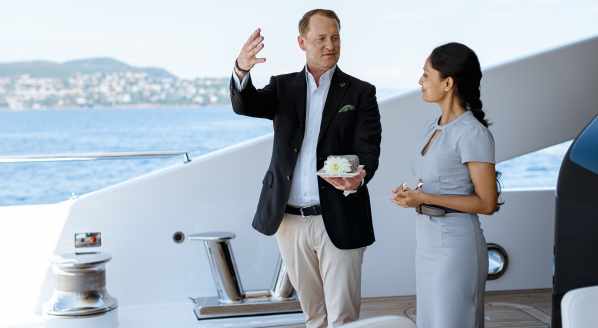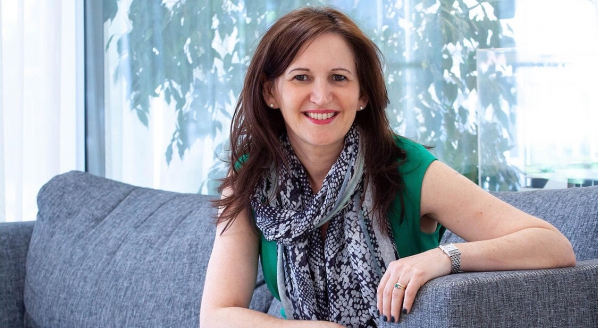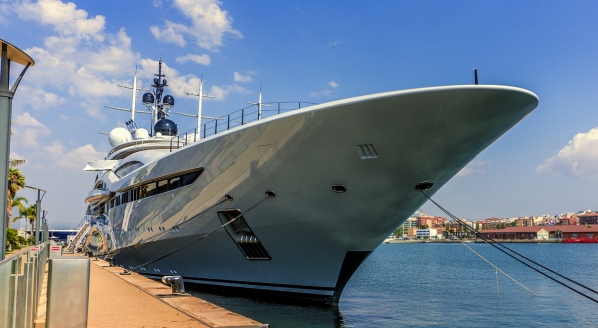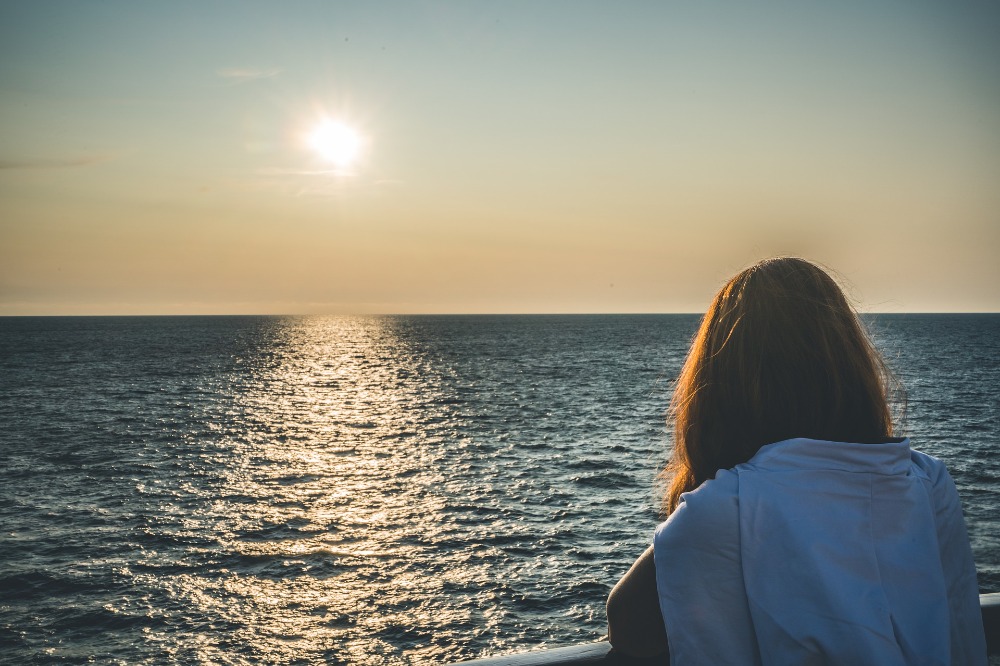Managing crew welfare on M/Y Starfire
Captain Paul Duncan reflects upon the on-board mental health challenges caused by the pandemic…
“One hand for you, the other for the boat” – it’s one of the most-repeated pieces of advice given to new sailors (along with graphic explanations of the reasons a boom is called a boom). While fairly self-evident, its meaning is worth stating: when dealing with any situation on board – from the day-to-day to a major crisis – be aware of your safety as you move about the boat. You don’t help anyone if you lose your footing and fall overboard or become injured, and certainly not yourself.
This adage can also be applied to crewmembers’ mental health. Just as important as not falling overboard while keeping the boat moving, is the issue of not becoming mentally submerged while keeping it afloat.
If this year was a metaphorical vessel, for most of us in March of last year, it ran hard aground in the middle of completely uncharted waters, and no one was sure when the tide was going to rise. Our goals on Starfire quickly became: preserve the boat’s availability and operational status, preserve the boat’s COVID-free status, and preserve the crew’s mental welfare.
The first two issues are separate subjects in their own right (thankfully, to date, we’ve succeeded in both areas). But the challenges of preserving the mental health of our crew have been substantial; through isolation, the inability or significant difficulties for many foreign nationals to return home, the inability to leave home if they were able to return, and the general pervasion of uncertainty, all added to the usual pressures of living and working on a contained floating platform. We took a number of steps to try to manage this as best as possible, none revolutionary, many relatively minor, but in their aggregate they amounted to creating what we hoped was a supportive environment.
You can’t PCR test for depression or anxiety, but you can pay attention to your fellow crewmembers. As a crew of 13 with an average longevity on board of more than five years, on Starfire we have the advantage of knowing each other’s normal patterns and behaviours quite well. Significant deviations from this are then easier to spot, and we have the relationships to be able to ask if everything is ok, or simply invite someone who seems to be experiencing a low to engage in an activity or experience that might help remind them that we are, quite literally, all in this together.
You can’t PCR test for depression or anxiety, but you can pay attention to your fellow crewmembers...
(It is important to note that, particularly in a confined setting, crew who tend to be more introverted will often simply need space more than ‘forced family fun’ activities. In some instances, the best thing that can be provided is an area set aside where people sharing cabins, workspaces, and crew lounges can get some time to themselves).
While our familiarity with one another helps on Starfire, longevity together isn’t a requirement for providing supports for crewmembers. You don’t have to know someone intimately to be aware that two months of strict lockdown on board is going to lead to challenges in maintaining a positive mindset. For those who don’t feel comfortable sharing the state of their mental health (many crew fall in this category, although in my experience that number is decreasing), there are outside resources that can be extremely helpful.
One of them is MedAire’s ‘Emotional Support Service’. An affordable add-on to the MedLink subscription that many vessels already use for at-sea medical support, this service offers crew access to multiple therapy sessions for crew (and their immediate family), both online and in-person depending on location. There’s full confidentiality for the crew who contact them and, because the costs are subscription-based, crew can call without being concerned about incurring bills (or anyone knowing they’re struggling – one of the biggest hurdles to people seeking help). We’ve added this service to our package, and encouraged the crew to make use of it.
Another step we took this year that we hadn’t in the past was segmenting a month at the end of the summer season off for vacation time for the non-rotational, core crewmembers, all of whom had at that stage been on board since December of 2019. Despite many of those crew being logistically unable to return to their home nations, all those who had been on board for that extended duration were able to get away for a well-deserved and rejuvenating break.
Beyond that, there were a series of activities and measures we took to mitigate the limitations of lockdown, and our fairly stringent on-board COVID protocols post-lockdown. We took the large tender out on excursions on days off, we made sure everyone was aware the sundeck gym equipment was available to all and we had poker nights (the stews who hadn’t played before learned distressingly quickly), barbecues and braais.
I write this to outline some of the measures we took on board over this past year, and to add to the ongoing conversation about how to manage and foster crew mental health, at any time, and in particular this one. This isn’t meant as a summary of all that can and should be done. Each boat has different approaches to the mental health of its crew, as fits the programme and the vessel itself. The important thing, I think, is that there is an approach, and that there is recourse for crew looking for anything from a discussion about improving their mindset, to needing help in a crisis. One hand for you, the other for the boat.
54.00m 9.30m 3.30m 747
STEFANO NATUCCI
Zuretti S.A. Interior Designs (FRANÇOIS ZURETTI)
Benetti
NEW: Sign up for SuperyachtNewsweek!
Get the latest weekly news, in-depth reports, intelligence, and strategic insights, delivered directly from The Superyacht Group's editors and market analysts.
Stay at the forefront of the superyacht industry with SuperyachtNewsweek
Click here to become part of The Superyacht Group community, and join us in our mission to make this industry accessible to all, and prosperous for the long-term. We are offering access to the superyacht industry’s most comprehensive and longstanding archive of business-critical information, as well as a comprehensive, real-time superyacht fleet database, for just £10 per month, because we are One Industry with One Mission. Sign up here.
Related news

Butler training for superyacht crew
The best-known butler in Switzerland, Hanspeter Vochezer, is coaching the crews of Ocean Independence yachts
Crew

The impact of COVID-19 on crew recruitment in 2020
Laurence Lewis, director of YPI Crew, on the effects COVID-19 and her predictions for the year ahead
Crew

Superyacht chartering in the age of COVID-19
The team at Campbell Johnston Clark discuss the contractual intricacies of chartering in the COVID-19 age
Business
Related news
Butler training for superyacht crew
5 years ago
Superyacht chartering in the age of COVID-19
5 years ago
NEW: Sign up for
SuperyachtNewsweek!
Get the latest weekly news, in-depth reports, intelligence, and strategic insights, delivered directly from The Superyacht Group's editors and market analysts.
Stay at the forefront of the superyacht industry with SuperyachtNewsweek




